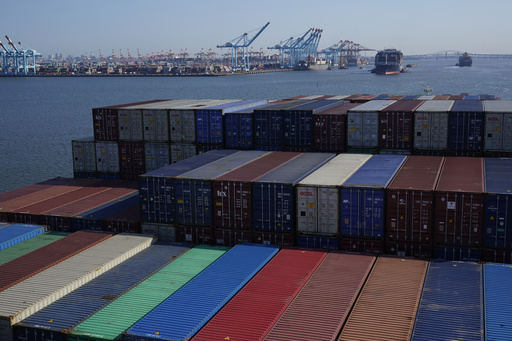Approximately 45,000 dockworkers on the U.S. East and Gulf Coasts are considering striking on Oct. 1 to combat job automation. The International Longshoremen’s Union is requesting higher wages and a total prohibition on the automation of cranes, gates, and container movements at 36 U.S. ports, where about half of the nation’s cargo is handled.
If the strike is prolonged, it could lead to shortages of certain consumer goods. The U.S. economy would likely suffer from disruptions even in the case of a short-lived strike. Delays in clearing cargo and heavier traffic at West Coast ports, not involved in the strike, are anticipated.
The dispute has not seen any negotiation progress since June, with the union threatening to strike once the contract expires on Sept. 30. The union president insists on fair wages, citing long hours and sacrifices made by workers. The situation is reminiscent of the last national strike by longshoremen in 1977.
If the strike persists, there could be spot shortages of products, affecting industries like automobiles and pharmaceuticals. Despite concerns, President Joe Biden is not expected to intervene immediately. Both parties are encouraged to engage in negotiations to avoid a detrimental strike for both sides.
Automation is a significant point of contention, with the union opposing job displacement by technology at ports. Studies have shown varying impacts of automation on port jobs, with some suggesting that it could lead to efficiency gains but also potential job losses. The discussion also includes the competitiveness of U.S. ports compared to those in Asia and Europe.
Should a strike occur, West Coast ports might see increased freight, but the entire capacity cannot be absorbed. The utilization of automation to complement human efforts at ports is proposed to maintain competitiveness and preserve jobs. Resolving the automation matter remains a distant concern, with a need for further discussions and considerations on the future of port operations.


